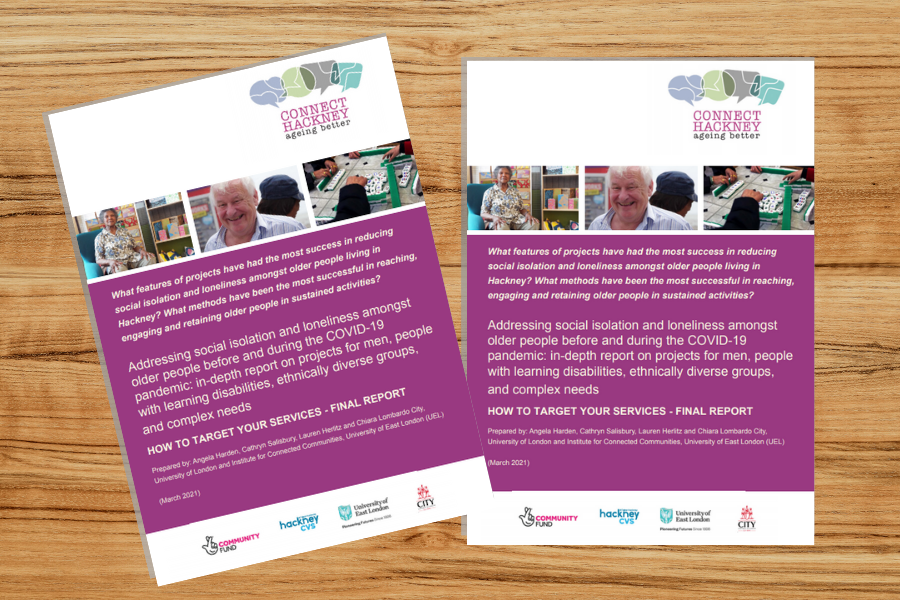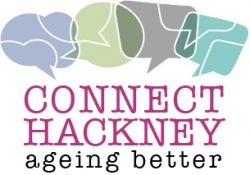Connect Hackney’s Targeting services report published
The latest Connect Hackney report shares learning about these targeted projects from the ongoing local evaluation of the overall Connect Hackney programme and aims to inform commissioners and policy makers with a remit to tackle social isolation and loneliness and promote health and wellbeing amongst older people.
Commissioned projects in Phase 2 include those targeting specific groups of older people not easily reached by other projects within the programme: men, those with learning disabilities, ethnically diverse groups and those with complex needs.
Aims and methods
This report presents qualitative findings which contribute to addressing ‘test and learn’ questions on the success of the targeted projects in relation to reducing social isolation and loneliness and on the reach, engagement and retention of participants within these projects prior to the Covid-19 pandemic. The research also explored the impact of the Covid-19 pandemic on the targeted projects and their participants. Qualitative interviews were undertaken with 17 project providers and 35 project participants capturing perspectives from across the targeted themes. All interviews were conducted via video-conferencing software or via telephone during the Covid-19 pandemic between May and October 2020.Conclusion
The Connect Hackney programme for people aged 50 and over is a community-based approach to addressing social isolation and loneliness and its adverse consequences for health and wellbeing. The projects which targeted men, people with learning disabilities, ethnically diverse groups and those with complex needs offered a diverse range of group activities and practical and emotional support for individuals. The findings support the continuation of targeted interventions to reduce loneliness and social isolation and improve wellbeing among older people.Qualitative interviews with providers and participants identified new friendships and improved wellbeing for project participants. The targeted projects brought together people with shared experiences (celebrating commonalities in culture, background, circumstances) and this was a key element that enabled participants to flourish. Exploration of the ways in which these perceived benefits were achieved suggest a number of underlying features (e.g. regular participation in meaningful activities, the qualities and skills of project staff); which need to be adapted for particular groups and personal circumstances. Findings on reach, engagement and retention similarly suggest ways in which generic strategies can be combined and optimised for specific groups.
The report was prepared by: Angela Harden, Cathryn Salisbury, Lauren Herlitz and Chiara Lombardo City, University of London and Institute for Connected Communities, University of East London (UEL)


